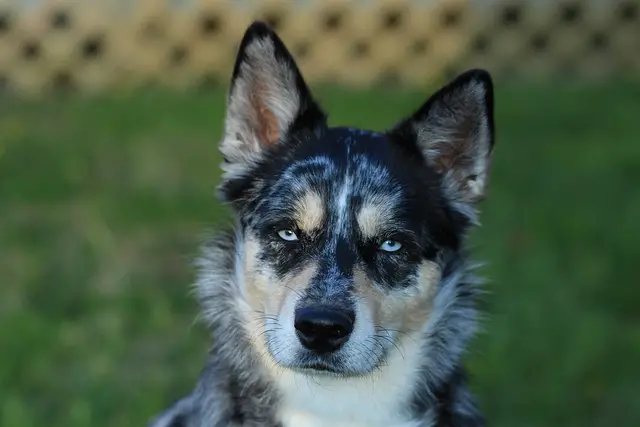Howdy, restfridge4
About Me:

It is important to know which foods are toxic to your dog, especially when they are eaten in large quantities.
Diets for dogs are customized according to the animal's age, health status, etc. Some foods from human food such as fish, potatoes, and rice are usually used in dog food, however, other foods should be avoided because they contain harmful substances for them.
Milk, although it is the food of choice when your puppy is growing up, becomes lactose intolerant when it becomes an adult dog. In addition, some foods can be very difficult for pets' digestive systems, such as fatty ones or seasonings. There are also foods that contain toxic substances for your dog, such as ethanol from alcohol, theobromine from chocolate, or caffeine from coffee.
Here are 9 toxic foods to avoid giving your pet.
Most people are aware that chocolate is harmful to dogs. It is rare for dogs to have an off button when it comes to finding food, unlike felines. Your dog's symptoms and toxicity level depend on how much and what type of chocolate he consumes. puppies for sale near me can cause vomiting, diarrhea, thirst, abdominal discomfort, lethargy, muscle tremors, irregular heartbeats, high body temperatures, seizures, and even death. Darker chocolates (such as baker's chocolate or cocoa powder) are more dangerous for puppies. Contains more caffeine and theobromine, two substances that cause toxicosis in dogs. Make sure your dog does not drink caffeinated beverages as well. Chocolate can be harmful to your dog. Read more here.
Contains theobromine, a dangerous and highly stimulant substance that causes heart attacks at high doses.
There is ethanol in alcohol that is toxic for animals. The smallest amount of alcohol can make a dog intoxicated. It is possible for dogs to be poisoned by small amounts of alcohol found in drinks, syrups, and raw bread dough. Often, people who consume these products become intoxicated because they contain ethanol and hops, which both cause alcohol poisoning. Intoxication symptoms include vomiting, disorientation, high body temperature, restlessness, excessive panting, tremors, and seizures. It can lead to organ system failure and even death in dogs who show signs of alcohol intoxication. Raw bread dough can also cause stomach expansion, causing tissue damage and breathing difficulties.
Anemia in dogs and cats can be caused by thiosulfate (especially onion).
A small quantity of thiosulfate in it, which makes it more dangerous than garlic, can damage your pet very quickly.
Caffeine can raise the heart rate and cause tachycardia just like alcohol and theobromine in chocolate.
Grapes contain 32 g of toxic substance per kg of dog, and raisins contain 11-30 g. Ingestion over these amounts can lead to kidney failure within 72 hours if they are toxic.
The avocado fruit and its skin contain persin, a powerful fungicidal toxin. Its fruit, leaves, seeds, and bark are not toxic to humans, but toxic to animals. Dogs can experience diarrhea and vomiting as a result.
The sugar content of sweets is harmful to teeth and can also cause excess weight, so foods containing sweeteners should also not be consumed. In gum, candy, and sugar-free baked goods, there is a sweetener called xylitol, which is toxic to dogs and causes a drop in blood sugar levels, leading to liver damage.
Dogs should not be given macadamia nuts. As a result, they are unable to move, causing muscle tremors and, in large doses, paralysis.
There has been a link between grapes and raisins and kidney failure in some dogs. There's no point in finding out! Within 12 hours of ingestion, vomiting, lethargy, and diarrhea are possible. A lack of treatment can result in dehydration, decreased appetite, increased urination, then decreased urination. Take your dog to the vet as soon as possible if she exhibits these signs after consuming grapes or raisins. You can develop kidney disease in your dog for a long time or even die of kidney failure within three or four days of the onset of the disease.
A natural sweetener, xylitol is found in foods such as sugarless gum, sugar-free candy, and baked goods. Besides toothpaste and mouthwash, there is also it in chewable vitamins and cough drops. Ingestion can damage your dog's liver and cause a life-threatening drop in blood sugar. There is a risk of vomiting, seizures, and loss of coordination within moments to a few hours of ingesting the substance. One piece of sugar-free gum could potentially cause a toxic reaction in a 10-pound dog, according to the Pet Poison Helpline. It is also possible for dogs to lose their liver function if they ingest large amounts of xylitol. Xylitol is an addictive sweetener that your dog might consume if you suspect they have consumed something with Xylitol in it.
Garlic, shallots, scallions, and chives are all toxic to dogs. They contain compounds that can cause gastroenteritis, anemia, and severe red blood cell damage. Onions are five times more powerful than garlic. A person who has eaten onions or garlic may not experience symptoms for a few days after ingestion, but symptoms can include lethargy, weakness, and an orange- to dark red color to the urine. Among Japanese dog breeds, the Akita and Shiba Inus are more sensitive to garlic and onions.

